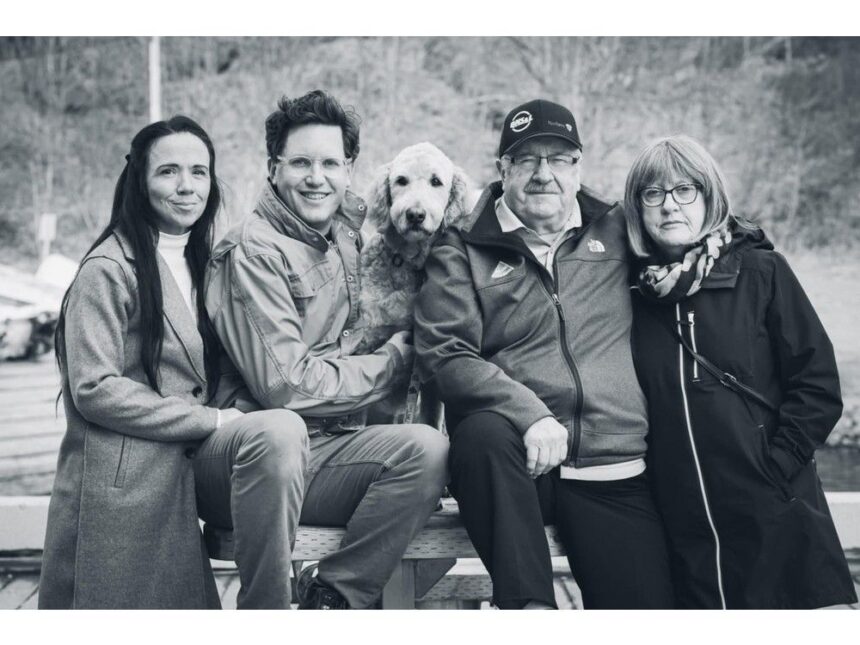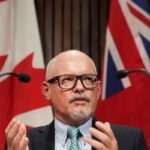In a troubling reflection of healthcare system gaps across Newfoundland and Labrador, a 74-year-old man’s urgent medical needs went unaddressed until his family’s desperate social media plea went viral last week. The incident has sparked renewed scrutiny of systemic failures that leave vulnerable patients waiting for critical care despite repeated attempts to navigate official channels.
Gordon Skiffington, who suffers from advanced Parkinson’s disease and dementia, spent weeks struggling with severe pain and deteriorating mobility while his family repeatedly sought medical intervention through conventional healthcare pathways. Despite multiple calls to his family doctor, specialists, and emergency services, meaningful action only materialized after his daughter’s emotional Facebook post garnered thousands of shares and comments.
“It shouldn’t take public shaming to get basic healthcare for our most vulnerable citizens,” said Elizabeth Skiffington, Gordon’s daughter. “We followed every proper protocol for weeks – appointments, referrals, calls to Health Line 811 – but doors kept closing until we had no choice but to go public.”
Within 24 hours of the viral post, which detailed Gordon’s suffering with photos that visibly moved many readers, health authorities arranged immediate assessment and treatment. This stark contrast between pre-viral and post-viral response has raised serious questions about accountability in the provincial healthcare system.
Dr. Samantha Reynolds, healthcare policy analyst at Memorial University, points to a troubling trend: “What we’re seeing increasingly is a two-tiered system emerging unofficially – those who know how to leverage public pressure get care, while those who quietly follow the rules often continue suffering. This fundamentally undermines the principles of equal access in Canadian healthcare.”
The Newfoundland and Labrador Medical Association acknowledges these challenges stem partly from resource constraints that plague the system. With approximately 125,000 residents lacking a primary care physician and specialist wait times among the longest in Canada, patients like Gordon often fall through widening cracks.
Health Minister Tom Osborne responded to media inquiries about the case by announcing a review of intake procedures, particularly for vulnerable seniors. “Every resident deserves timely, appropriate care regardless of their ability to advocate for themselves,” Osborne stated. “We’re examining why standard protocols failed in this situation.”
Patient advocacy groups have documented dozens of similar cases where extraordinary measures were required to access care. Eastern Health, the regional authority responsible for Gordon’s care, issued a statement acknowledging “opportunities for improvement” while citing privacy limitations in discussing specific cases.
For the Skiffington family, the incident highlights a painful reality of modern healthcare navigation. “Dad worked his whole life, paid taxes, and believed in our system,” Elizabeth noted. “Now when he needs it most, that system only responded when we essentially created a public relations problem.”
Healthcare experts point to several factors behind such systemic failures: fragmented communication between providers, overwhelming caseloads for physicians, insufficient resources for complex care coordination, and bureaucratic processes that prioritize efficiency over patient outcomes.
As Gordon now receives the appropriate care he desperately needed, his case raises profound questions about accountability in public healthcare. If viral social media posts become necessary for vulnerable patients to receive attention, what happens to those without digital-savvy advocates or whose stories fail to capture public imagination?
The question now facing Newfoundland’s health authorities extends beyond one family’s ordeal: In a system designed to care equally for all citizens, why does the squeaky wheel principle increasingly determine who receives timely care, and what fundamental reforms might ensure that silent suffering no longer goes unaddressed?
























